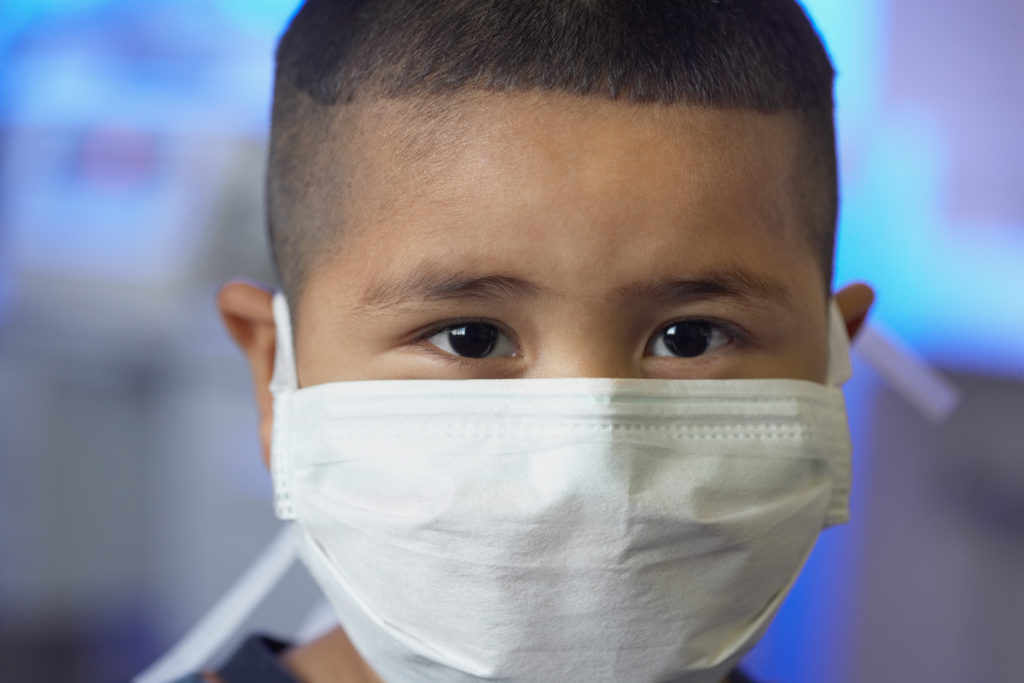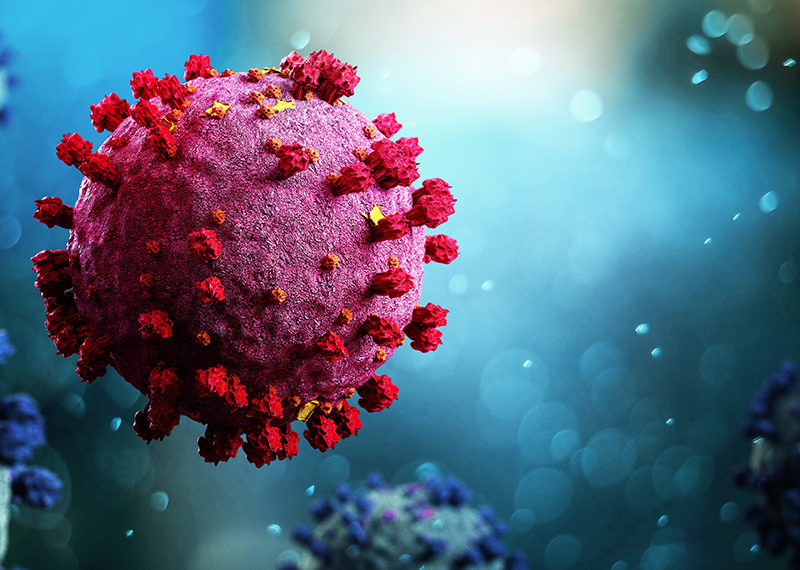What Could COVID-19 Mean for Pediatrics?
What Could COVID-19 Mean for Pediatrics? https://pediatricsnationwide.org/wp-content/uploads/2020/03/AdobeStock_68406059-1024x683.jpg 1024 683 Abbie Miller Abbie Miller https://pediatricsnationwide.org/wp-content/uploads/2023/05/051023BT016-Abbie-Crop.jpg- March 31, 2020
- Abbie Miller

As COVID-19 spreads across the globe, experts are digging into the data and establishing protocols to better understand the illness in the context of pediatrics.
As COVID-19, the illness caused by a novel coronavirus, has reached pandemic status, life has changed dramatically. At Nationwide Children’s Hospital, the halls are uncharacteristically quiet as a “stay at home” order from the state has led to many appointments being rescheduled or shifted to telehealth. Employees who can work from home are doing so, and those on the front lines are preparing for the surge of patients expected to need COVID-related care.
And while current indications show that COVID-19 seems to most severely affect adults in their 60s and older, experts are also learning more about how children are affected. In a paper published March 16 in Pediatrics, researchers share the outcomes from more than 2,000 children affected by COVID-19 in China. Of the cases reported in the study, two thirds had “suspected COVID-19” and the remaining one third had laboratory confirmed COVID-19.
About 51% of the children had mild illness, about 4% were asymptomatic, and 39% had moderate illness. Of the 6% who had severe or critical illness, only one died. This is a dramatically different landscape from COVID-19 in adults where about 18.5% who are affected develop severe illness.
The study also showed higher rates of severe illness in infants compared to older children. Rates of critical cases were 11% in infants, 7% in children aged 1-5 years, 4% in those aged 6-10 years, 4% in those 11-15 and 3% in those over 16 years old.
While this analysis is an important step in understanding the effect of COVID-19 on children, it doesn’t paint the whole picture. The children counted in this study were all from China. It is not known if children in the United States will have the same spectrum of disease. Already, the United States has reported one infant death as a result of COVID-19. Additionally, only a minority proportion of the cases were laboratory confirmed, meaning that some of these children might not have had COVID-19 at all, but some other respiratory illness. And we still don’t know why children seem more resilient to COVID-19 infection.
In short: There is still a lot we don’t know about children and COVID-19, and further research will be necessary to fill in the blanks.
Preparing in a Time of Unknowns
One of the key priorities of all health care organizations at this time is to keep providers healthy so that patients can continue receiving care – regardless of their diagnosis. Patients with diabetes, cancer and broken arms continue to need care. And some will need care for COVID-19.
Even though pediatric patients tend to have milder forms of COVID-19, in general, there are some higher at-risk patients including infants and immunocompromised patients. Therefore, pediatric hospitals must remain vigilant about keeping their employees healthy and working to better understand the risks to more critical or complex patients.
Large pediatric institutions see hundreds of thousands of patients each year with complex health care needs. It is crucial for the hospital to remain prepared to care for them, in addition to any needs the pandemic might create.
Looking for Answers
As the pandemic progresses, more research will help us better understand the risks to children affected by COVID-19. At Nationwide Children’s, researchers from across the Abigail Wexner Research Institute are pivoting to consider how their work can be applied to COVID-19.
For example, the research team of Octavio Ramilo, MD, Ascun Mejias, MD, PhD, and Mark Peeples, PhD, all principal investigators in the Center for Vaccines and Immunity, have spent decades understanding how the immune system responds to respiratory syncytial virus (RSV). Mark Hall, MD, a principal investigator in the Center for Clinical and Translational Research, and his collaborators are experts in understanding how the immune system responds to severe sepsis. Now, they are using the methods and infrastructure they’ve created to learn about how the immune system responds to COVID-19. They hope, that if children are indeed especially resilient to the novel illness, their immune response will contain clues about how and why. And just maybe, by understanding what makes children’s illness milder, researchers can find ways to protect the most vulnerable populations affected.
Other researchers, including Dean Lee, MD, PhD, director of the Cellular Therapy and Cancer Immunology Program, are using natural killer cells to treat viruses. In response to COVID-19, they are investigating whether NK cells could ultimately be used as a therapy for COVID-19.
As researchers continue to learn more about COVID-19 and the novel coronavirus, those discoveries can be translated to better care and prevention for those affected.
About the author
Abbie (Roth) Miller, MWC, is a passionate communicator of science. As the manager, medical and science content, at Nationwide Children’s Hospital, she shares stories about innovative research and discovery with audiences ranging from parents to preeminent researchers and leaders. Before coming to Nationwide Children’s, Abbie used her communication skills to engage audiences with a wide variety of science topics. She is a Medical Writer Certified®, credentialed by the American Medical Writers Association.
-
Abbie Millerhttps://pediatricsnationwide.org/author/abbie-miller/
-
Abbie Millerhttps://pediatricsnationwide.org/author/abbie-miller/
-
Abbie Millerhttps://pediatricsnationwide.org/author/abbie-miller/
-
Abbie Millerhttps://pediatricsnationwide.org/author/abbie-miller/
- Posted In:
- Features






